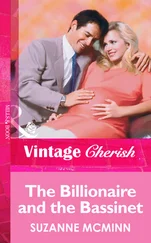Somerset Maugham - The Moon and Sixpence
Здесь есть возможность читать онлайн «Somerset Maugham - The Moon and Sixpence» весь текст электронной книги совершенно бесплатно (целиком полную версию без сокращений). В некоторых случаях можно слушать аудио, скачать через торрент в формате fb2 и присутствует краткое содержание. Жанр: Классическая проза, на английском языке. Описание произведения, (предисловие) а так же отзывы посетителей доступны на портале библиотеки ЛибКат.
- Название:The Moon and Sixpence
- Автор:
- Жанр:
- Год:неизвестен
- ISBN:нет данных
- Рейтинг книги:5 / 5. Голосов: 1
-
Избранное:Добавить в избранное
- Отзывы:
-
Ваша оценка:
- 100
- 1
- 2
- 3
- 4
- 5
The Moon and Sixpence: краткое содержание, описание и аннотация
Предлагаем к чтению аннотацию, описание, краткое содержание или предисловие (зависит от того, что написал сам автор книги «The Moon and Sixpence»). Если вы не нашли необходимую информацию о книге — напишите в комментариях, мы постараемся отыскать её.
The Moon and Sixpence — читать онлайн бесплатно полную книгу (весь текст) целиком
Ниже представлен текст книги, разбитый по страницам. Система сохранения места последней прочитанной страницы, позволяет с удобством читать онлайн бесплатно книгу «The Moon and Sixpence», без необходимости каждый раз заново искать на чём Вы остановились. Поставьте закладку, и сможете в любой момент перейти на страницу, на которой закончили чтение.
Интервал:
Закладка:
But how strange it was that the creative instinct should seize upon this dull stockbroker, to his own ruin, perhaps, and to the misfortune of such as were dependent on him; and yet no stranger than the way in which the spirit of God has seized men, powerful and rich, pursuing them with stubborn vigilance till at last, conquered, they have abandoned the joy of the world and the love of women for the painful austerities of the cloister. Conversion may come under many shapes, and it may be brought about in many ways. With some men it needs a cataclysm, as a stone may be broken to fragments by the fury of a torrent; but with some it comes gradually, as a stone may be worn away by the ceaseless fall of a drop of water. Strickland had the directness of the fanatic and the ferocity of the apostle.
But to my practical mind it remained to be seen whether the passion which obsessed him would be justified of its works. When I asked him what his brother-students at the night classes he had attended in London thought of his painting, he answered with a grin:
"They thought it a joke."
"Have you begun to go to a studio here?"
"Yes. The blighter came round this morning -the master, you know; when he saw my drawing he just raised his eyebrows and walked on."
Strickland chuckled. He did not seem discouraged. He was independent of the opinion of his fellows.
And it was just that which had most disconcerted me in my dealings with him. When people say they do not care what others think of them, for the most part they deceive themselves. Generally they mean only that they will do as they choose, in the confidence that no one will know their vagaries; and at the utmost only that they are willing to act contrary to the opinion of the majority because they are supported by the approval of their neighbours. It is not difficult to be unconventional in the eyes of the world when your unconventionality is but the convention of your set. It affords you then an inordinate amount of self-esteem. You have the self-satisfaction of courage without the inconvenience of danger. But the desire for approbation is perhaps the most deeply seated instinct of civilised man. No one runs so hurriedly to the cover of respectability as the unconventional woman who has exposed herself to the slings and arrows of outraged propriety. I do not believe the people who tell me they do not care a row of pins for the opinion of their fellows. It is the bravado of ignorance. They mean only that they do not fear reproaches for peccadillos which they are convinced none will discover.
But here was a man who sincerely did not mind what people thought of him, and so convention had no hold on him; he was like a wrestler whose body is oiled; you could not get a grip on him; it gave him a freedom which was an outrage. I remember saying to him:
"Look here, if everyone acted like you, the world couldn't go on."
"That's a damned silly thing to say. Everyone doesn't want to act like me. The great majority are perfectly content to do the ordinary thing."
And once I sought to be satirical.
"You evidently don't believe in the maxim: Act so that every one of your actions is capable of being made into a universal rule."
"I never heard it before, but it's rotten nonsense."
"Well, it was Kant who said it."
"I don't care; it's rotten nonsense."
Nor with such a man could you expect the appeal to conscience to be effective. You might as well ask for a reflection without a mirror. I take it that conscience is the guardian in the individual of the rules which the community has evolved for its own preservation. It is the policeman in all our hearts, set there to watch that we do not break its laws. It is the spy seated in the central stronghold of the ego. Man's desire for the approval of his fellows is so strong, his dread of their censure so violent, that he himself has brought his enemy within his gates; and it keeps watch over him, vigilant always in the interests of its master to crush any half-formed desire to break away from the herd. It will force him to place the good of society before his own. It is the very strong link that attaches the individual to the whole. And man, subservient to interests he has persuaded himself are greater than his own, makes himself a slave to his taskmaster. He sits him in a seat of honour. At last, like a courtier fawning on the royal stick that is laid about his shoulders, he prides himself on the sensitiveness of his conscience. Then he has no words hard enough for the man who does not recognise its sway; for, a member of society now, he realises accurately enough that against him he is powerless. When I saw that Strickland was really indifferent to the blame his conduct must excite, I could only draw back in horror as from a monster of hardly human shape.
The last words he said to me when I bade him good-night were:
"Tell Amy it's no good coming after me. Anyhow, I shall change my hotel, so she wouldn't be able to find me."
"My own impression is that she's well rid of you," I said.
"My dear fellow, I only hope you'll be able to make her see it. But women are very unintelligent."
Chapter XV
When I reached London I found waiting for me an urgent request that I should go to Mrs. Strickland's as soon after dinner as I could. I found her with Colonel MacAndrew and his wife. Mrs. Strickland's sister was older than she, not unlike her, but more faded; and she had the efficient air, as though she carried the British Empire in her pocket, which the wives of senior officers acquire from the consciousness of belonging to a superior caste. Her manner was brisk, and her good-breeding scarcely concealed her conviction that if you were not a soldier you might as well be a counter-jumper. She hated the Guards, whom she thought conceited, and she could not trust herself to speak of their ladies, who were so remiss in calling. Her gown was dowdy and expensive.
Mrs. Strickland was plainly nervous.
"Well, tell us your news," she said.
"I saw your husband. I'm afraid he's quite made up his mind not to return." I paused a little. "He wants to paint."
"What do you mean?" cried Mrs. Strickland, with the utmost astonishment.
"Did you never know that he was keen on that sort of thing."
"He must be as mad as a hatter," exclaimed the Colonel.
Mrs. Strickland frowned a little. She was searching among her recollections.
"I remember before we were married he used to potter about with a paint-box. But you never saw such daubs. We used to chaff him. He had absolutely no gift for anything like that."
"Of course it's only an excuse," said Mrs. MacAndrew.
Mrs. Strickland pondered deeply for some time. It was quite clear that she could not make head or tail of my announcement. She had put some order into the drawing-room by now, her housewifely instincts having got the better of her dismay; and it no longer bore that deserted look, like a furnished house long to let, which I had noticed on my first visit after the catastrophe. But now that I had seen Strickland in Paris it was difficult to imagine him in those surroundings. I thought it could hardly have failed to strike them that there was something incongruous in him.
"But if he wanted to be an artist, why didn't he say so?" asked Mrs. Strickland at last. "I should have thought I was the last person to be unsympathetic to -to aspirations of that kind."
Mrs. MacAndrew tightened her lips. I imagine that she had never looked with approval on her sister's leaning towards persons who cultivated the arts. She spoke of "culchaw" derisively.
Mrs. Strickland continued:
"After all, if he had any talent I should be the first to encourage it. I wouldn't have minded sacrifices. I'd much rather be married to a painter than to a stockbroker. If it weren't for the children, I wouldn't mind anything. I could be just as happy in a shabby studio in Chelsea as in this flat."
Читать дальшеИнтервал:
Закладка:
Похожие книги на «The Moon and Sixpence»
Представляем Вашему вниманию похожие книги на «The Moon and Sixpence» списком для выбора. Мы отобрали схожую по названию и смыслу литературу в надежде предоставить читателям больше вариантов отыскать новые, интересные, ещё непрочитанные произведения.
Обсуждение, отзывы о книге «The Moon and Sixpence» и просто собственные мнения читателей. Оставьте ваши комментарии, напишите, что Вы думаете о произведении, его смысле или главных героях. Укажите что конкретно понравилось, а что нет, и почему Вы так считаете.










